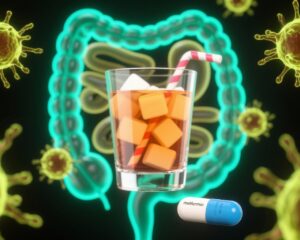Introduction: The Urgency of Protecting Our Cognitive Health
As the global population ages, maintaining healthy brain function becomes a paramount goal for individuals and healthcare systems alike. Dementia, a progressive condition characterized by declining cognitive abilities, affects millions worldwide and severely impacts quality of life. Although no cure currently exists to reverse dementia, emerging evidence suggests that lifestyle factors, particularly nutrition, play a crucial role in reducing its risk or delaying its progression. This article explores 13 food categories scientifically associated with cognitive protection and offers practical guidance on incorporating them into daily life.
Understanding the Science Behind Diet and Dementia Prevention
Cognitive decline involves complex brain changes including oxidative stress, inflammation, and neuronal damage. Nutrients with antioxidant and anti-inflammatory properties, alongside essential fats and vitamins, can help mitigate these processes. The Mediterranean-DASH Intervention for Neurodegenerative Delay (MIND) diet is a well-researched example integrating such foods to support cognitive health.
1. Colorful Vegetables: Nature’s Antioxidant Powerhouses
Leafy greens like spinach, kale, and lettuce, along with other colorful veggies, provide high levels of vitamins K and A and powerful antioxidants. These nutrients help protect brain cells from damage linked to dementia. Experts recommend consuming at least five servings of different colored vegetables daily, with each serving around 125 grams, to maximize benefits.
2. Berries: Natural Brakes on Cognitive Decline
Berries such as blueberries, strawberries, raspberries, and cranberries are rich in flavonoids and antioxidants. Studies show that a daily intake of about 125 grams of berries can slow cognitive decline in older adults and may delay dementia onset by up to two and a half years. Adding berries to yogurt, cereals, or salads is a delicious way to nourish your brain.
3. Omega-3-Rich Fish: Guardians of Memory
Fatty fish—including salmon, sardines, mackerel, and herring—are excellent sources of omega-3 fatty acids essential for neural function and synaptic plasticity. Consuming these fish twice weekly (about 150 grams per serving) supports memory and brain health and also contributes to heart health, thereby synergistically reducing dementia risk.
4. Beans and Legumes: Fueling Brain Happiness
Legumes such as soybeans, black beans, lentils, and chickpeas provide plant protein, iron, and fiber. They also help stabilize blood sugar and cholesterol, which are important for brain health. Weekly consumption of at least three servings (~150 grams each) in soups, stews, or salads can bolster cognitive function.
5. Whole Grains: Steady Energy and Gut-Brain Benefits
Whole grains—including oats, millet, buckwheat, and brown rice—offer B vitamins, fiber, and complex carbohydrates that provide sustained energy to the brain. The MIND diet recommends at least three servings daily, substituting processed white grains to support both cognitive and digestive health.
6. Nuts: The Brain’s Energy Boosters
Nuts such as almonds, walnuts, pistachios, macadamias, and pecans contain healthy fats, protein, and antioxidants that enhance memory and reduce brain inflammation. Regular intake of about 30-40 grams five times per week can help maintain youthful brain function.
7. Sweet Potatoes: Delicious Anti-Dementia Allies
Sweet potatoes are rich in fiber, vitamins C and A, minerals, and unique plant compounds. These nutrients aid glucose regulation and reduce inflammation, with preliminary evidence suggesting potential anti-cancer effects as well. Incorporating two servings (150 grams each) per week can boost overall brain and body health.
8. Seeds: Tiny but Mighty Brain Protectors
Seeds like pumpkin, flax, and chia are nutrient-dense and high in vitamin E, minerals, and plant-based omega-3 fatty acids. These components contribute to cholesterol reduction and dampening systemic inflammation. Daily consumption of one to two servings (~15-30 grams) as toppings on yogurts, salads, or cereals is advisable.
9. Healthy Fats: The Brain’s Lubricants
Consuming around 30-45 ml daily of healthy oils such as extra virgin olive oil and coconut oil, along with fats from nuts, seeds, and avocados, supports neuronal function and synaptic health. Use these oils liberally in cooking and salad dressings to nourish your brain.
10. Eggs: Essential for Memory and Learning
Eggs provide choline, a key nutrient necessary for synthesizing acetylcholine, a neurotransmitter vital to memory and learning. Eating one egg daily, prepared simply by boiling, steaming, or scrambling, is an easy, economical brain food.
11. Yogurt and Fermented Dairy: Gut-Brain Axis Maintenance
Emerging research emphasizes gut health’s role in cognition. Fermented dairy products like yogurt and kefir contain probiotics that help balance intestinal microbes and reduce inflammation, indirectly benefiting brain health. A daily 150 ml serving of unsweetened yogurt supports this gut-brain connection.
12. Tea and Coffee: Antioxidants with a Cognitive Kick
Green, oolong, and white teas, along with moderate coffee consumption, provide polyphenols and caffeine that improve antioxidant defenses, blood flow, and mental alertness. Drinking one to two cups of tea and 1-2 cups of coffee daily can contribute to cognitive vitality.
13. Dark Chocolate: A Sweet Brain Booster
Dark chocolate with at least 70% cocoa contains flavanols that enhance cerebral blood flow and neuroplasticity, which are key for cognitive performance and mood. A daily indulgence of 20-30 grams offers benefits without excessive calories.
Practical Recommendations Table
| Food Category | Recommended Intake | Suggestions |
|---|---|---|
| Colored Vegetables | 5 servings/day (~125 g each) | Raw, steamed; mix leafy greens with red/yellow veggies |
| Berries | 1 serving/day (~125 g) | Add to yogurt or cereal |
| Fish | 2 servings/week (~150 g each) | Salmon, sardines; steamed, baked, or grilled |
| Beans | 3 servings/week (~150 g cooked) | Use in soups, stews, or salads |
| Whole Grains | 3 servings/day | Oats, millet, brown rice; replace white grains |
| Nuts | 5 servings/week (30-40 g each) | Snack or add to breakfasts |
| Sweet Potatoes | 2 servings/week (~150 g each) | Steamed, baked, or in desserts |
| Seeds | 1-2 servings/day (~15 g each) | Sprinkle on yogurt, salads, or oats |
| Healthy Oils | 2-3 tablespoons/day (30-45 ml) | Use olive or coconut oil in cooking |
| Eggs | 1 egg/day | Boiled, steamed, or scrambled for breakfast |
| Fermented Dairy | 1 cup/day (~150 ml) | Plain yogurt, kefir; avoid added sugars |
| Tea | 1-2 cups/day (200-300 ml each) | Green, oolong, or white tea; morning/afternoon |
| Dark Chocolate | 20-30 g/day | Cocoa content ≥70%, snack or dessert |
A Patient Story: Helen’s Journey to Brain Health
Helen, a 68-year-old retired teacher, experienced concerns about occasional forgetfulness. After consulting her physician, she learned about the importance of diet in brain health. Helen began incorporating leafy greens, berries, salmon, and nuts into her meals, and limited processed foods. Over six months, she found improvements in memory and concentration, illustrating how dietary habits can empower individuals to safeguard cognitive function.
Dispelling Common Myths
Some believe dietary supplements alone can prevent dementia, but research shows whole foods provide synergistic nutrients that are more effective together. Additionally, diets high in sugar and processed fats may exacerbate cognitive decline, so moderation and quality matter.
Expert Insights
Dr. Lisa Mosconi, a neuroscientist specializing in nutrition and brain aging, emphasizes “The most powerful tool we have against dementia is preventive lifestyle modification, especially diet, which should focus on nutrient-dense foods rich in antioxidants and healthy fats.”
Conclusion: Nourishing the Brain Starts on Your Plate
While no single food can guarantee prevention of dementia, adopting a diet rich in colorful vegetables, berries, omega-3 fatty acids, nuts, and fermented products offers a practical strategy to reduce risk and enhance cognitive health. Starting today, embracing these 13 food categories can help you and your loved ones maintain a vibrant, sharp mind well into older age.
References
- Morris MC, Tangney CC, Wang Y, et al. MIND diet associated with reduced incidence of Alzheimer’s disease. Alzheimer’s Dement. 2015 Sep;11(9):1007-1014.
- Devore EE, Kang JH, Breteler MM, Grodstein F. Dietary intakes of berries and flavonoids in relation to cognitive decline. Ann Neurol. 2012;72(1):135-143.
- Yurko-Mauro K, McCarthy D, Rom D, et al. Beneficial effects of docosahexaenoic acid on cognition in age-related cognitive decline. Alzheimers Dement. 2010;6(6):456-464.
- Ngandu T, Lehtisalo J, Solomon A, et al. A 2 year multidomain intervention of diet, exercise, cognitive training, and vascular risk monitoring versus control to prevent cognitive decline in at-risk elderly people (FINGER): a randomised controlled trial. The Lancet. 2015;385(9984):2255-2263.
- Singh B, Parsaik AK, Mielke MM, et al. Association of Mediterranean diet with mild cognitive impairment and Alzheimer’s disease: a systematic review and meta-analysis. J Alzheimers Dis. 2014;39(2):271-282.


